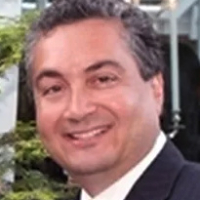So Pole White Collar Crime Lawyer, New York
Sponsored Law Firm
-
 x
x

Click For More Info:
-
Law Office of Mark S. Guralnick
55 Madison Avenue 4th Floor Morristown, NJ 07960» view mapCriminal Defense Law Dedicated. Fearless. Successful.
Mark S. Guralnick and his legal team have helped clients throughout the USA and across the world by applying unparalleled dedication and hard work to each case.
800-399-8371
Nicholas Gregory Kaizer
✓ VERIFIEDFelony, Federal, White Collar Crime
Nicholas Kaizer is a nationally -recognized expert in criminal defense, who has appeared in numerous courts around the country. He has lectured attorn... (more)
Robert Michael Appleton
✓ VERIFIEDInternational, Criminal, Government, White Collar Crime, RICO Act
Robert M. Appleton is a world renowned and internationally recognized cross border litigation attorney focused on assisting global, foreign and US co... (more)
Alfredo F Mendez
Mental Health, White Collar Crime, Criminal, Business Organization
Status: In Good Standing
FREE CONSULTATION
CONTACTFREE CONSULTATION
CONTACTFREE CONSULTATION
CONTACTAndrew Weinstein
Criminal, DUI-DWI, Misdemeanor, Felony, White Collar Crime
Status: In Good Standing Licensed: 15 Years
FREE CONSULTATION
CONTACT Mark Guralnick Morristown, NJ
Mark Guralnick Morristown, NJ AboutLaw Office of Mark S. Guralnick
AboutLaw Office of Mark S. Guralnick Practice AreasExpertise
Practice AreasExpertise


